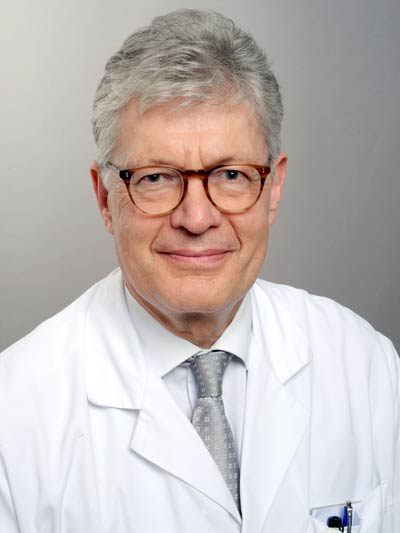You may find more information on www.clinicaltrials.gov
Background
 The clinical significance of pulmonary embolism (PE) limited to the subsegmental pulmonary arteries, so called isolated subsegmental pulmonary embolism (SSPE), remains controversial. Whether isolated SSPE represents “true” PE, a clinically more benign form of PE, a physiologic lung clearing process, or a false positive result (artifact) is currently unclear and hence, whether patients with isolated SSPE benefit from anticoagulant treatment is uncertain. Despite growing evidence from observational studies that withholding anticoagulation may be a safe option in selected patients with isolated SSPE (i.e., those without concomitant deep vein thrombosis, cancer, etc.), most patients with isolated SSPE receive anticoagulant treatment, which is associated with an increased risk of bleeding.
The clinical significance of pulmonary embolism (PE) limited to the subsegmental pulmonary arteries, so called isolated subsegmental pulmonary embolism (SSPE), remains controversial. Whether isolated SSPE represents “true” PE, a clinically more benign form of PE, a physiologic lung clearing process, or a false positive result (artifact) is currently unclear and hence, whether patients with isolated SSPE benefit from anticoagulant treatment is uncertain. Despite growing evidence from observational studies that withholding anticoagulation may be a safe option in selected patients with isolated SSPE (i.e., those without concomitant deep vein thrombosis, cancer, etc.), most patients with isolated SSPE receive anticoagulant treatment, which is associated with an increased risk of bleeding.
Aim of the study
The overall objective of the randomized controlled SAFE-SSPE trial is to evaluate the efficacy and safety of clinical surveillance without anticoagulation compared to anticoagulation treatment in low-risk patients with isolated SSPE.
Methods
This trial is designed as an international, multicenter, placebo-controlled, double-blind, parallel-group non-inferiority trial. Consenting low-risk patients with isolated SSPE without concomitant DVT will be randomly assigned in a 1:1 ratio to receive placebo (“clinical surveillance group”) or
anticoagulant treatment with rivaroxaban (“anticoagulation group”). Eligible patients will be recruited at 27 high volume hospitals in Switzerland, The Netherlands, and Canada.
Impact
This study addresses an important gap of knowledge, the optimal management of SSPE, and represents the first randomized, direct comparison of clinical surveillance vs. anticoagulation for managing isolated SSPE. Successful completion of this project will provide a strong scientific basis for withholding anticoagulation in low-risk patients with SSPE and has the potential to reduce bleeding complications and patient harm.
Steering committee

Prof. Dr. med. Drahomir Aujesky
Chair and Sponsor-Investigator

Dr. med. Christine Baumgartner
Member Steering Committee and Sub-Investigator / Project Manager

Prof. Frederikus A. Klok, MD, PhD, FESC
Member Steering Committee Sponsor-Representative Netherlands

Prof. Marc Carrier, MD, Msc
Member Steering Committee and Sponsor-Representative Canada

Prof. Marc Righini, MD
Member Steering Committee

Prof. Jürg-Hans Beer, MD
Member Steering Committee
Funding
The Swiss National Science Foundation has approved a grant over CHF 1.3 Mio in May 2019. Bayer (Schweiz) AG provides the study medication (rivaroxaban and placebo tablets) free of charge.
For treating physicians
What should I keep in mind if my patient is enrolled in SAFE-SSPE?
- The following medications are not compatible with the study medication: oral or parenteral anticoagulants, GP IIb/IIIa inhibitors, strong CYP3A4 inhibitors (HIV-protease inhibitors, systemic azole-antifungals), strong CYP3A4 inducers (rifampicin, rifabutin, phenytoin, phenobarbital, primidone, carbamazepine, St. John’s wort) or dual anti-platelet use. If these drugs are temporarily indicated, the trial medication should be paused and then restarted after discontinuation of the respective drug as soon as possible. In the event of a long-term indication for one of these drugs (e.g. anticoagulation in newly diagnosed atrial fibrillation), the study medication should be completely discontinued.
- The use of non-steroidal anti-inflammatory drugs (NSAIDs) or monotherapy with aspirin or clopidogrel is permitted if strongly indicated. Mechanical thromboprophylaxis (e.g. compression stockings) is also permitted.
- If a medical procedure is needed that requires the discontinuation of anticoagulation, the study medication should be paused for at least 24 hours before the procedure and restarted as soon as possible after the procedure. If medically indicated, bridging therapy with unfractionated or low molecular weight heparin can be used for the duration of the paused study medication.
- In the event of an emergency intervention, the study medication should be paused immediately. If emergency reversal of the anticoagulation effect is necessary, unblinding should be considered. After the intervention, the trial drug should be restarted as soon as clinically possible. If necessary from a medical point of view, the pausation of the study medication can also be bridged with low molecular weight heparin or unfractionated heparin.
- If a recurrent venous thromboembolism is diagnosed, the study medication should be stopped and the necessary clinical treatment initiated. After definitive confirmation of the diagnosis, unblinding of treatment group allocation should be performed, since a recurrent venous thromboembolism under therapeutic anticoagulation may require a different treatment approach (e.g. with low molecular weight heparin) compared to a thromboembolism recurrence under placebo.
- If severe bleeding occurs, the trial medication should be stopped and the necessary treatment initiated. If an emergency reversal of the anticoagulant effect is necessary, unblinding should be considered.
- If a pregnancy should occur, the study medication should be stopped and any further treatment initiated in accordance with the treating physician’s advice/prescription. Unblinding is necessary, since rivaroxaban is contraindicated during pregnancy.
- To maintain blinding, we ask you to please refrain if possible from performing clotting tests or determining INR levels or anti-factor Xa activity.


